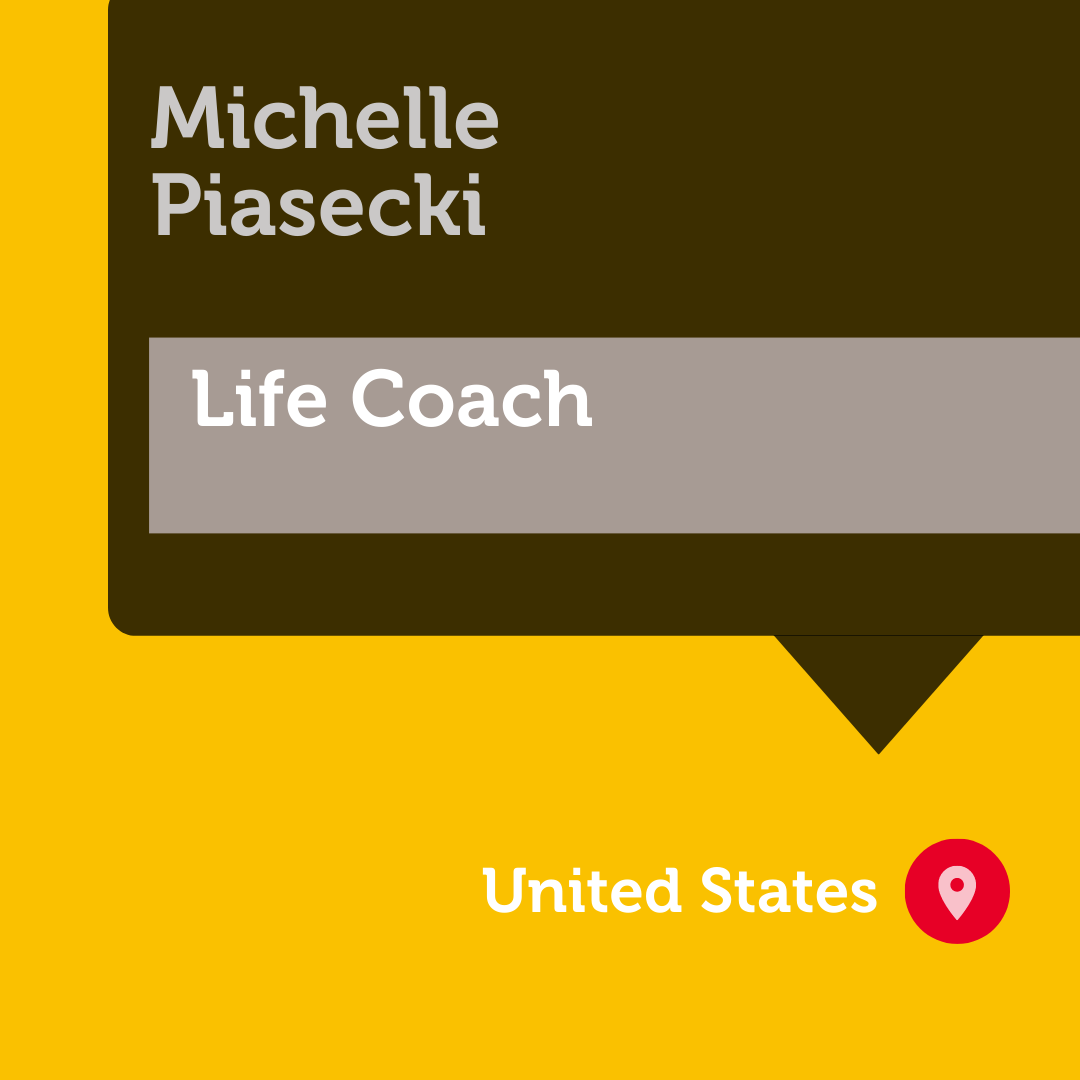A Research Paper By Michelle Piasecki, Life Coach, UNITED STATES
Parental Burnout of Neurodivergent Children
Parenting in a world with social media, complex gaming, and many distractions can be exhausting at best, but for parents of neurodivergent children, there is an extra layer of complexity. The doctor appointments, medications, self-judgments, and social media posts of neurotypical children doing extraordinary feats can increase the pressure a parent feels as they grapple with it all. This increased pressure builds as parents juggle their needs with the needs of their children, only to leave them in a state of burnout that seems inescapable. Despite this overwhelming feeling, it is possible to heal and become stronger. A massive piece of healing lies in finding methods to alleviate self-blame and increase your support system.
In recent years, burnout has taken a front seat. In 2019, the World Health Organization enhanced its definition of burnout in its International Classification of Diseases, calling it “a syndrome conceptualized as resulting from chronic workplace stress that has not been successfully managed.” In its definition on the WHO Web site, burnout is listed as an “occupational condition,” expanding its use from only a reference to workers in the caring professions.
Commonly, burnout refers to more than work settings. According to the National Library of Medicine, it encompasses “anyone, from stressed-out career-driven people and celebrities to overworked employees and homemakers.” The research, articles, and books published on burnout also use a more extensive definition to encompass a wider group of people.
Parental Burnout
One of these areas of burnout includes parental burnout. This form of burnout has been increasingly studied in recent years as men and women juggle work and parenting duties, especially since the pandemic highlighted the needs of families. Some studies found that burnout is higher in parents of neurodivergent children and often impacts their physical and mental well-being because they also find themselves navigating their child’s intense struggles, medication, doctor appointments, and school meetings. The good news is that you can lessen symptoms of burnout when addressing the expectations and isolation of parents learning and navigating their child’s diagnosis and challenges.
Addressing Expectations Alleviates Self-Blame
When my son was first born, his obsession with air conditioning fans and security cameras was remarkably observant and cute. Then came the challenges with potty training and tantrums that outlasted what was considered normal. It all left me doubting my abilities as a parent as I wondered what I was doing wrong to cause these problems. I even assumed I was horrible at potty training when the many suggested techniques and reward systems didn’t work.
Constant teacher notes sent home led to his first diagnosis of Attention Deficit Hyperactivity Disorder (ADHD) and Sensory Processing Disorder (SPD) in first grade. This diagnosis seemed to help us understand his challenges, and it slightly eased my self-blame. However, the worry increased when he failed to want to tie his shoes by fifth grade and was struggling with friendships as well as math. Once again, I wondered. Had I failed? Did I need to discipline him more, or did I need to set more boundaries? My first reaction was to place doubt and blame on myself.
How many times, as parents, do we blame ourselves for something? When parenting neurodivergent children, this is easy because the differences between your child and neurotypical children become more and more pronounced. Instead of being curious, the instinct is to blame ourselves, but if my husband and I hadn’t kept asking questions and exploring, we might not have all the answers.
The school suggested one last evaluation for Autism Spectrum Disorder (ASD), and we found one more label to attach to our son’s other diagnoses. This label does not define my son, but it explains how his brain works and why he gets so emotional over small events that wouldn’t impact others. It also gave me methods and resources to support me in this journey.
Making the right decision for your child is overwhelming, especially when your child doesn’t meet the exact timelines as peers. As Odeyya Gertel Kraybill, Ph.D., states in her article “Parenting a Neurodivergent Child Is Hard!,” “Feeling inadequate, ashamed, and guilty are common for neurodivergent parents.” Often these feelings come from thoughts of insufficiency as parents of neurodivergent children labor over their child not fitting in with neurotypical peers, struggling in school, and experiencing long-lasting emotional outbursts that should have ended when the child was a toddler.
A study of Finnish parents published in 2019 found that most parents who experienced burnout had one thing in common: A struggle with socially prescribed perfectionism. Hewitt and Flett (1991a) defined this type of perfectionism as “… people’s belief or perception that significant others have unrealistic standards for them, evaluate them stringently, and exert pressure on them to be perfect.” When grandparents, well-meaning friends, and teachers start prescribing solutions to stop the tantrum or force a child to comply through discipline, rewards, or other tactics, parents can feel even more lost, often because those strategies were attempted and failed. These pressures to solve the issue to help children meet the development of their neurotypical peers can feel exhausting, eventually leading to parental burnout.
Support Systems Such as Coaching Can Help
The emotions associated with socially prescribed perfectionism connect to negative emotions that can be detrimental. According to Sorkkila and Aunola’s study, “mothers may experience considerable guilt for not being perfect, as expected by themselves or by society” (Hagger 2011). Other studies have supported that this type of perfectionism is detrimental, while self-oriented perfectionism has a more positive effect. For instance, the 2006 study “A mediated model of perfectionism, effect, and physical health” found that “socially prescribed perfectionism was related to poorer health, while self-oriented perfectionism was associated with better physical health.” This link between the type of perfectionism and health is a factor in parental burnout. The researchers go further in explaining the link. “These findings,” they write, “are consistent with the idea that perfectionism imposed by the self is motivating, associated with feeling good, but when perceived to be coming from others is stressful and even detrimental to health.” So when a comment from a friend or relative giving well-meaning advice leaves a parent feeling less than others, studies show that they are not the only one. Feelings of guilt and shame also plague others as they measure themselves to society’s expectations.
In addition, this burnout is higher in parents navigating the needs of neurodivergent children. Feelings of inadequacy, stress, and overwhelm are key factors among posts on the Facebook pages supporting parents of neurodivergent children. Parents who feel hopeless and helpless. They have exhausted all the tools they expected to work or were told would work – the well-meaning advice of doctors, friends, and relatives. They write about giving up, and some do – on medication, treatment, everything. The research supports this idea of increased stress on parents with neurodivergent children. Padden and James’s 2017 study on “Stress among Parents of Children with and without Autism Spectrum Disorder” state that “parents of children with ASD reported significantly higher parental distress, anxiety, and depression than parents of typically developing children, with no significant gender differences observed.” So, the child’s needs increase the stress level on the parents.
The research supports this idea. In Kossewska’s literature analysis and research study from 2020, it states that “it can be confirmed that parental burnout is a frequent phenomenon in parents of children with developmental disorders and depends on the specific situation related to the child’s functioning.” This idea of increased parental burnout makes awareness of this issue and its impacts even more critical to address to prevent the adverse effects on a parent’s health and the long-lasting impacts on the child.
These studies and the information they provide a show that parents of children with neurodivergent children can benefit from support such as therapy, coaching, support groups, and education. In “Risk Factors for Parental Burnout among Finnish Parents: The Role of Socially Prescribed Perfectionism,” it states that mothers could be taught skills such as self-compassion and acceptance.” (Sorkkila 657) This idea is further supported by other studies. Padden and James point out that “a higher use of adaptive coping strategies, including emotional support, by parents of children with ASD could act as a buffer to the negative impact of parenting stress, suggesting a health-protective effect of these adaptive coping strategies.” Looking at this burnout and the specific needs of parents with neurodivergent children helps coaches and other professionals understand the perspective and challenges experienced.
According to conservative estimates, parental burnout impacts at least 3.5 million U.S. parents (Roskam et al., 2018). Studies further show that neurodivergent parents experience even more burnout when compared to the parents of neurotypical children. This increase in stress and overwhelm is linked explicitly to societal pressures and the need for a support system. When these supports are lacking, parents can find themselves feeling emotions of guilt, shame, and simply feeling less than others. Parents can find the root cause of such emotions and the tools they need through coaching support that will help them discover their own solutions and a solution process that will help them grow as their child’s needs change and evolve.
The limitation of this literature study is that only a portion of the literature was studied. This research, which ultimately expands decades, needs expansion to look more deeply at the findings. This limitation and the recent increase in studies of parental burnout only show the increased pursuit of the topic. Increased learning in this area would provide a growing amount of tools and resources for parents to help them navigate not only the challenges of today’s technological world and its impacts but also the growing body of neurodivergence information and how that shows up differently in different children. As more and more children are diagnosed, more and more parents learn about this for the first time. It is time to create more awareness and expand beyond our limited knowledge so that parents can confidently go in the direction their child needs to go to grow and flourish.
References
Kossewska, J. (2020). Bringing up a Child With Autism. Parental Stress and Burnout Syndrome in a Time Perspective Context. Web Address Here
Mikoolajczak, M. & Roskam, I. (2020). Parental Burnout: Moving the Focus From Children to Parents. New Directions for Child and Adolescent Development, 2020 (174). Web Site
Molnar, D., Reker, D., Culp, N., Sadava, S., & Decourville, N. (2006). A Mediated Model of Perfectionism, effect, and Physical Health. Journal of Research in Personality, 40 (2006), 482-500.
Padden, C. & James, J. (2017). Stress Among Parents of Children With and Without Autism Spectrum Disorder: A Comparison Involving Physiological Indicators and Parent Self-Reports. Journal of Developmental and Physical Disabilities, 29 (4), 567-586. Web Site
Sorkkila, M. & Aunola, K. (2019). Risk Factors for Parental Burnout Among Finnish Parents: The Role of Socially Prescribed Perfectionism. 29 (2020), 648-659.
Burnout an “Occupational Phenomenon:” International Classification of Diseases.
Depression: What Is Burnout?

/iStock-1395144844_blog.jpg#keepProtocol)


